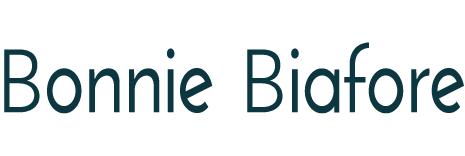Don’t Forget About Your Personal Growth as a Project Manager
 Are you so focused on your projects that you’ve been ignoring your personal growth as a project manager? You have to be proactive about growing or you’ll stagnate. Pursue challenges, feedback, education, and experiences that will expand your capabilities. Here are some ideas for promoting your growth and improving your project delivery.
Are you so focused on your projects that you’ve been ignoring your personal growth as a project manager? You have to be proactive about growing or you’ll stagnate. Pursue challenges, feedback, education, and experiences that will expand your capabilities. Here are some ideas for promoting your growth and improving your project delivery.
- Exchange ideas with project peers. Managing projects isn’t just about good project management. Sound business analysis (BA) and organizational change management (CM) are also important. To expand your toolkit, ask your colleagues in those disciplines what led them to that vocation. Find out what approaches they use to succeed. Or follow BA and CM follow on LinkedIn or other channels.
- Get a mentor. An experienced mentor can help in so many ways. You can talk with them candidly about your challenges and concerns. They can provide insights from their career and help come up with solutions to issues. They can also help you deal with the emotions of getting through “those” days. For junior project managers, a mentor who works in your industry can help you expand your PM skills and insights in your area of expertise. For experienced project managers, a mentor with a different industry background can help expand your skills by sharing their business experience in another industry.
- Dig into your organization’s strategy. Strategy pushes change from the current state to new capabilities and market position. That change is created through projects! You can gain new and valuable insights as a project manager by connecting your project objectives to your organization’s strategic objectives. For experienced PMs, you’ll be enlightened when you participate in the design of projects to support strategy. Better yet, participate in the development of organizational strategy.
- Attend association events. The Project Management Institute (PMI), International Association for Project Management (IAPM), International Project Management Association (IPMA) and the Association for Project Management (APM) all have meetings that provide valuable insights for project managers. You can gain new perspectives with an hour a month attending an association event.
- Take advantage of educational opportunities. There are so many places to study new skills: the associations listed above, LinkedIn Learning, websites, podcasts, and more. Many of these opportunities are short (1 to 3 hours or even less) so you can grow without interfering with managing your projects.
If you’re guilty of neglecting your personal growth, take a moment now to set goals for including growth in your schedule. For example, set aside an hour this week to draft a plan – which activities you’ll start with, how you’ll initiate them, and when you will do them.
Coming Up
Do you have questions about careers in project management? Will I like being a project manager? What skills do I need? What about education? How do I get experience? Are certifications worth it and what do I need to do to earn them? What are the possible career paths? Chris Croft and I co-authored the course How to Launch a Career in Project Management to answer all these questions – and many more. For this Office Hours event, we want you to watch the course FIRST. Then, if you still have questions, join us in this event to ask questions we didn’t answer.
_______________________________________
This article belongs to the Bonnie’s Project Pointers newsletter series, which has more than 49,000 subscribers. This newsletter is 100% written by a human (no aliens or AIs involved). If you like this article, you can subscribe to receive notifications when a new article posts.
Want to learn more about the topics I talk about in these newsletters? Watch my courses in the LinkedIn Learning Library and tune into my LinkedIn Office Hours live broadcasts.



